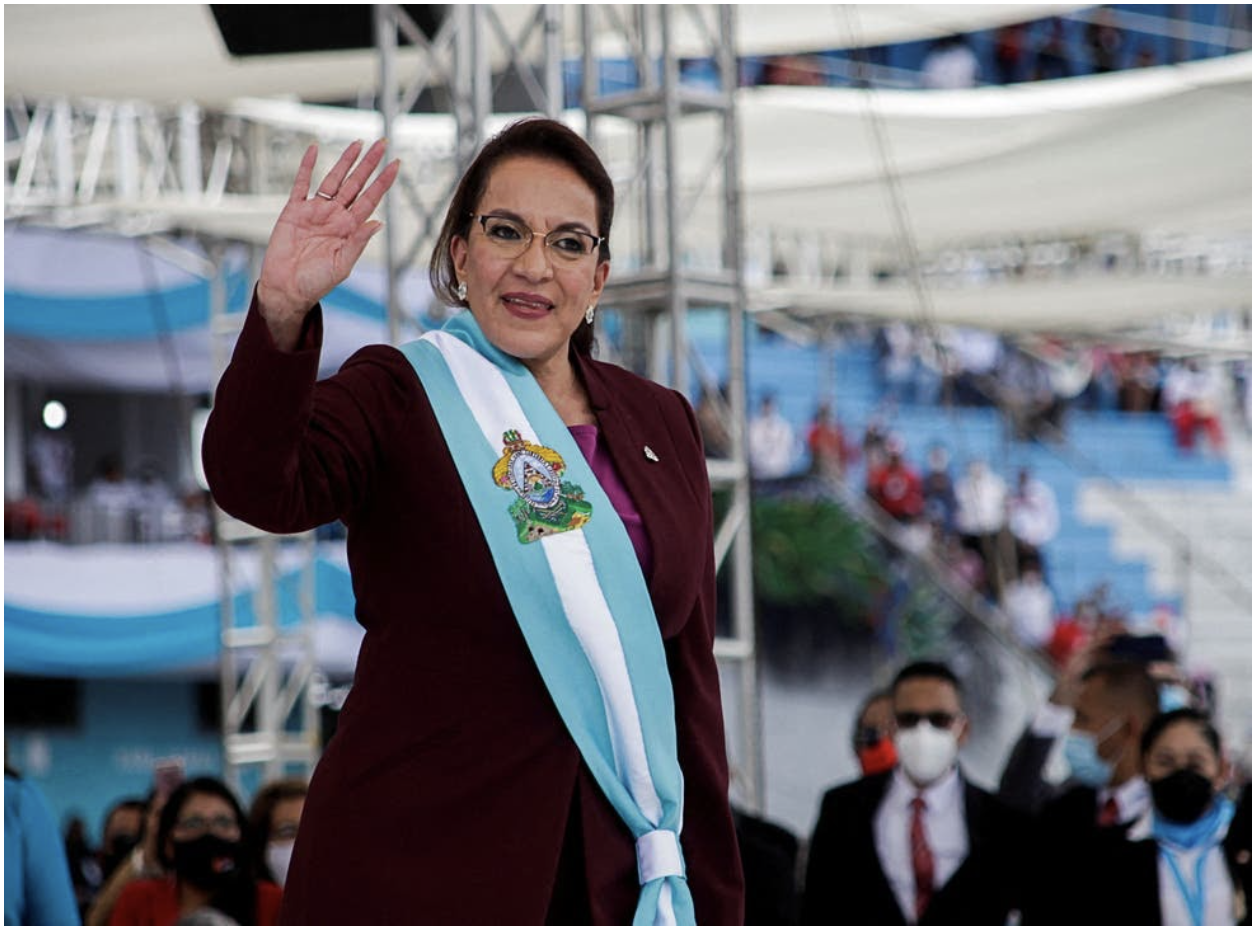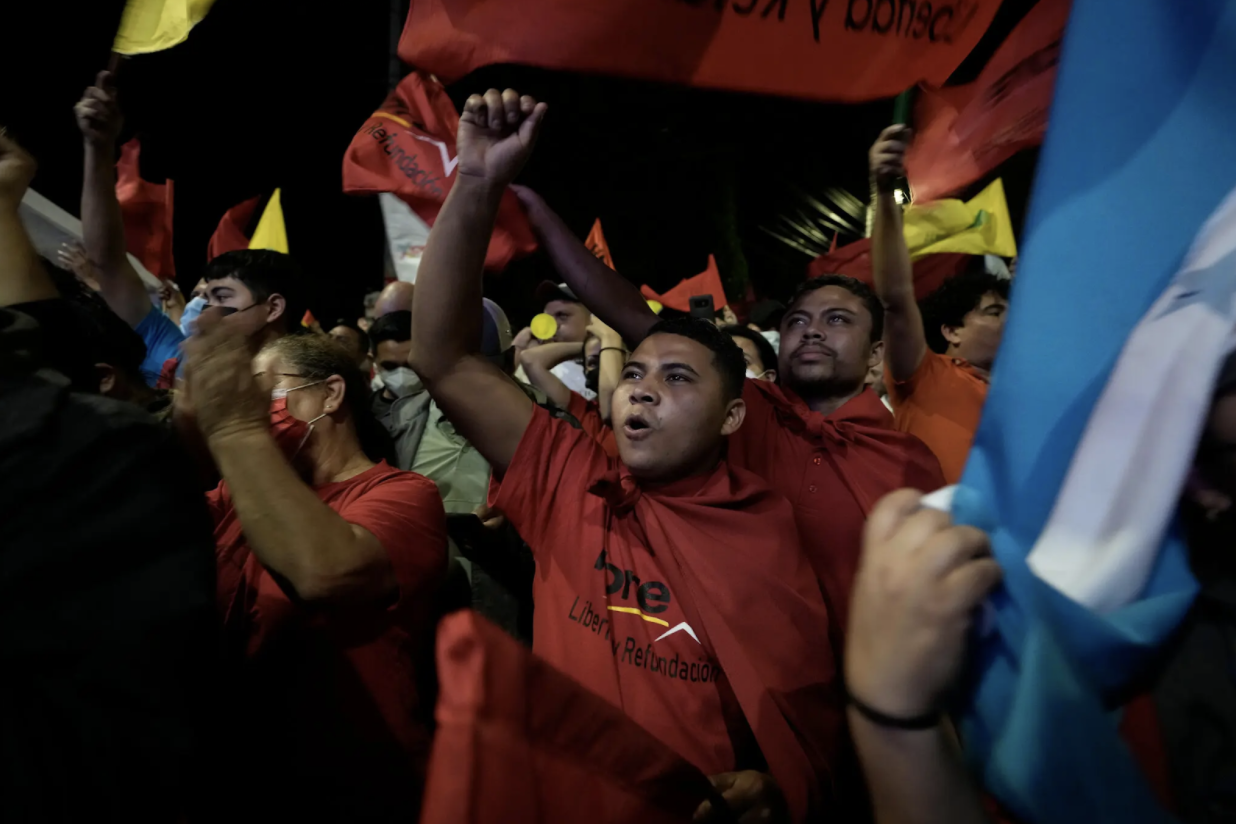Progressive or Not: New Honduras Amnesty Law Casts Doubt on Anti-Corruption Platform
President Xiomara Castro waving to supporters during her swearing-in ceremony Photo: REUTERS
Xiomara Castro, member of the left-wing Libre party and President of Honduras, campaigned on rooting out the corruption that has plagued the country. Prior to Castro’s election, the right-wing National Party’s regime was associated with narco-political scandals, with some allegations of systemic corruption tying government members at every level with major organized crime groups. Most famously, former President Porfino Lobo Sosa allegedly accepted bribes from a notorious drug organization, with his son, Fabio, eventually being convicted and sentenced to 24 years in prison for trafficking cocaine.
Supporters of President Castro have argued that she would restore anti-corruption efforts to Honduras, as she has often stated that a “woman was needed to ‘manage funds with transparency’ and to say ‘out with corruption’ in Honduras.’” She has been touted as a progressive savior by some, with many claiming she is an essential piece to the recovery of Honduras, which was previously “governed by criminals.” In her campaign, Castro appealed to these sentiments, planning to create an anti-corruption commission and demilitarize public spending. With the Nationalist Party becoming inextricably linked with the misuse of funds and narcotics scandals, Castro appeared to be the “peoples’ alternative,” although recent controversy may prove otherwise.
Supporters of Ximara Castro at her rally in Tegucigalpa, Photo: Associated Press/Moises Castillo
This week, President Castro passed a law granting broad amnesty to individuals who were tied with her husband’s administration over a decade ago. The legislation states that it applies to “officials, employees or elected authorities” in office from January 2006 to June 2009, the term of President Zelaya’s administration. Advocates of the law argue that it was “needed for those who suffered political persecution following the 2009 coup that removed President Manuel Zelaya from office.” Critics, such as lawyer Juan Carlos Barrientos, have been quick to point out the new law is broad enough that it could cover those accused of money laundering and the misuse of public funds, therefore potentially protecting the very people Castro promised to rein in.
Given that the center of Castro’s platform has been focused on anti-corruption efforts, the new law has provided the people of Honduras with seemingly conflicting goals. In addition, with rumors of many Libre partycongressmen defectingto the Nationalist party, some supporters are beginning to worry that anti-corruption and progressive reforms will become near impossible to pass through Congress. If Castro fails to enact reforms and continues supporting legislation that garners protections for politicians, more citizens may flee to the United States to escape the nation’s ongoing instability. It remains to be seen what type of president Castro will be for Hondurans. If this new law is any indication, she may fall short of the progressive bulwark that so many hoped she would become.


